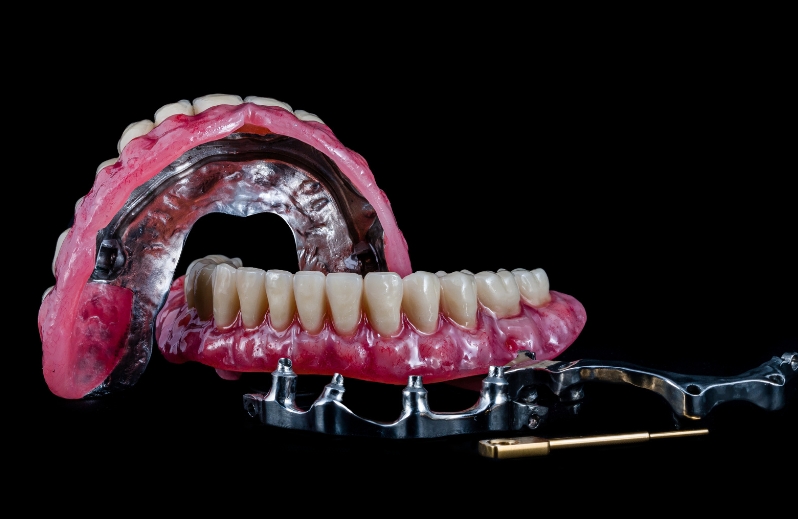


All-on-X dental implants are a revolutionary treatment option for individuals with severe tooth loss. This procedure involves placing a series of dental implants into the jawbone and attaching a full arch of fixed teeth to the implants. While All-on-X implants offer many benefits, such as improved chewing function, aesthetics, and self-confidence, it’s important to follow specific dietary guidelines during the healing process to ensure optimal results.
The Importance of Diet After All-on-X Implants
Following the All-on-X procedure, your diet plays a significant role in both the healing process and the success of the implants. Initially, you will need to adhere to a soft food diet to avoid placing excessive stress on your new implants and to promote healing. A board certified oral and maxillofacial surgeon will guide you through the dietary adjustments needed during the recovery phase.
Foods to Eat After Getting All-on-X Dental Implants
Soft Foods
In the first few days to weeks after your All-on-X dental implant procedure, focus on consuming soft foods that require minimal chewing. These foods are gentle on your healing gums and implant sites. Some suitable options include:
- Mashed potatoes: Smooth and easy to swallow, mashed potatoes provide comfort and nourishment.
- Applesauce: A good source of vitamins and gentle on the mouth.
- Yogurt: Rich in probiotics and calcium, yogurt is easy to eat and soothing.
- Soup: Choose smooth, non-chunky soups that are lukewarm or room temperature to avoid irritation.
- Smoothies: Blend fruits and vegetables for a nutrient-rich, easy-to-consume meal.
Blended and Pureed Foods
As you progress in your healing, you can incorporate blended or pureed foods into your diet. These foods are nutritious and require little chewing, making them ideal for recovery:
- Pureed vegetables: Carrots, peas, and other vegetables can be cooked until tender and blended into a smooth consistency.
- Creamy soups: Cream-based soups or those made with a blender provide additional nutrients and are easy on the implants.
- Puddings and custards: These soft desserts can offer a comforting treat while being gentle on your mouth.
Protein-Rich Foods
Maintaining a balanced diet that includes adequate protein is essential for healing and overall health. Protein helps in tissue repair and supports your body’s recovery process. Consider the following options:
- Soft scrambled eggs: High in protein and easy to prepare, scrambled eggs can be a nutritious addition to your diet.
- Cottage cheese: Soft and rich in protein, cottage cheese is easy to eat and digest.
- Smooth nut butter: Almond or peanut butter can be added to smoothies or consumed on soft bread.
Foods to Avoid After Getting All-on-X Dental Implants
Certain foods should be avoided to prevent complications and ensure the success of your implants:
- Hard and Crunchy Foods
- Nuts and seeds: These can be difficult to chew and may cause damage to the implants.
- Chips and pretzels: Their hardness can stress the implants and surrounding gums.
- Sticky Foods
- Chewing gum: Sticky gum can adhere to the implants and complicate cleaning.
- Caramel and toffees: These can be challenging to remove from your new dental work and may lead to discomfort.
- Hot and Spicy Foods
- Spicy dishes: Spices can irritate healing tissues and may cause discomfort.
- Hot beverages: Extremely hot drinks can affect the comfort of your healing mouth.
The Role of Your Oral Surgeon
Throughout your recovery process, regular check-ups with your board certified oral and maxillofacial surgeon are essential. They will monitor the healing of your implants, provide advice on dietary adjustments, and address any concerns you may have. Their expertise ensures that you maintain the best possible outcome for your All-on-X implants.
Eating the right foods after getting All-on-X dental implants is crucial for a successful recovery and long-term success of the implants. By focusing on soft, blended, and protein-rich foods while avoiding hard, sticky, and spicy items, you can support your healing process and enjoy a comfortable recovery. For personalized guidance and to ensure the best results, consult with a board certified oral and maxillofacial surgeon throughout your healing journey. Their professional advice will help you navigate the dietary changes and contribute to the overall success of your dental implants.


